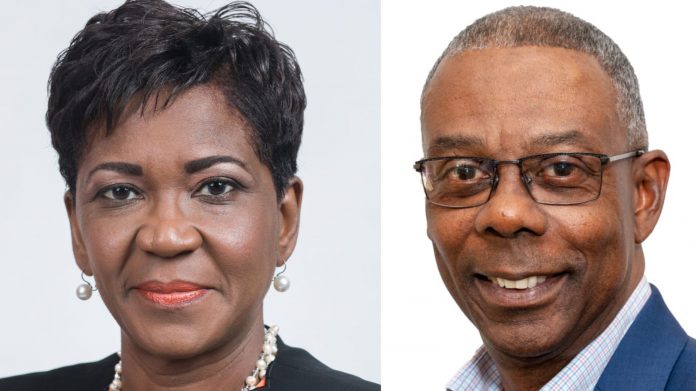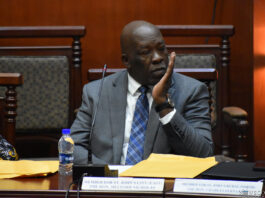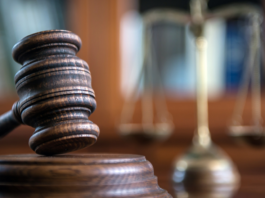By Gemma Handy
A merger of the country’s two main opposition parties to fight the next general election is unlikely but is not being ruled out altogether.
That’s the word from DNA leader Joanne Massiah who admitted yesterday she had been caught off guard by live radio comments from fellow party members alluding to a possible alliance with the UPP.
“Politics is dynamic and fluid – and one ought not approach these issues with any position of absoluteness as we don’t know what tomorrow holds,” she told Observer.
Massiah said she had “absolutely not” been anticipating remarks by the DNA’s First Vice President Bruce Goodwin on Observer Radio on Monday regarding a potential collaboration.
And she was quick to send out a subsequent press release stating “unequivocally” that no proposal had been forthcoming from the UPP of the “coming together” of the two entities for the polls, constitutionally due next year.
But it’s the latest episode in an already heating up political arena, despite the fact an election date is still yet to be called.
While the ruling ABLP has scoffed at what it views as “jumpy” behaviour by its opponents, the UPP has already unveiled its full list of candidates and the DNA is set to follow suit imminently.
The announcement of candidates is just one reason an alliance would not be “practical at this time”, Massiah explained.
“We are preparing ourselves for a three-party electoral race whenever the next general election is called,” she added.
For his part, UPP Political Leader Harold Lovell told Observer the party’s “doors are always open for discussion”.
He also confirmed he had had “informal and amicable discussions” with Goodwin over a possible merger.
But Massiah said such a decision would not be made by a single individual, and that no proposal would be taken seriously in the absence of something in writing.
“I have not heard that the UPP thinks the DNA has anything to offer, which is why I find the whole thing so strange and peculiar,” she continued.
She was also keen to rebuff suggestions of fractures within her party.
“I have none at all, with anybody in the DNA,” Massiah said. “We meet once a week for our management committee meetings and, as things arise, more frequently than that.”
The DNA has touted itself as offering a fresh, dynamic alternative, in the hope of wooing voters jaded by both the ABLP and the UPP.
While there may be some mileage to joining forces with an older, more established party, a major stumbling block would be discord on some key policies.
The country’s lucrative citizenship by investment programme (CIP), for example, would be abolished under a DNA administration.
“The DNA is fundamentally opposed to the selling of passports, whereas both the ABLP and the UPP see it as perhaps the easiest way to raise revenue.
“We value our citizenship and we feel it must not be sold. It’s a lazy man’s economy and a race to the bottom,” Massiah said.
“Also, sometimes it attracts persons who, under ordinary circumstance, would not pass muster.”
She said party members had been busy “crunching numbers” to devise alternative revenue streams to fill the financial gap CIP would leave.
Constitutional reform and the establishment of parish councils are also likely to be prime campaigning points for the country’s third party. The latter policy would help decentralise government and encourage residents to “play a more participatory and decision-making role in the development of their communities”, Massiah added.




